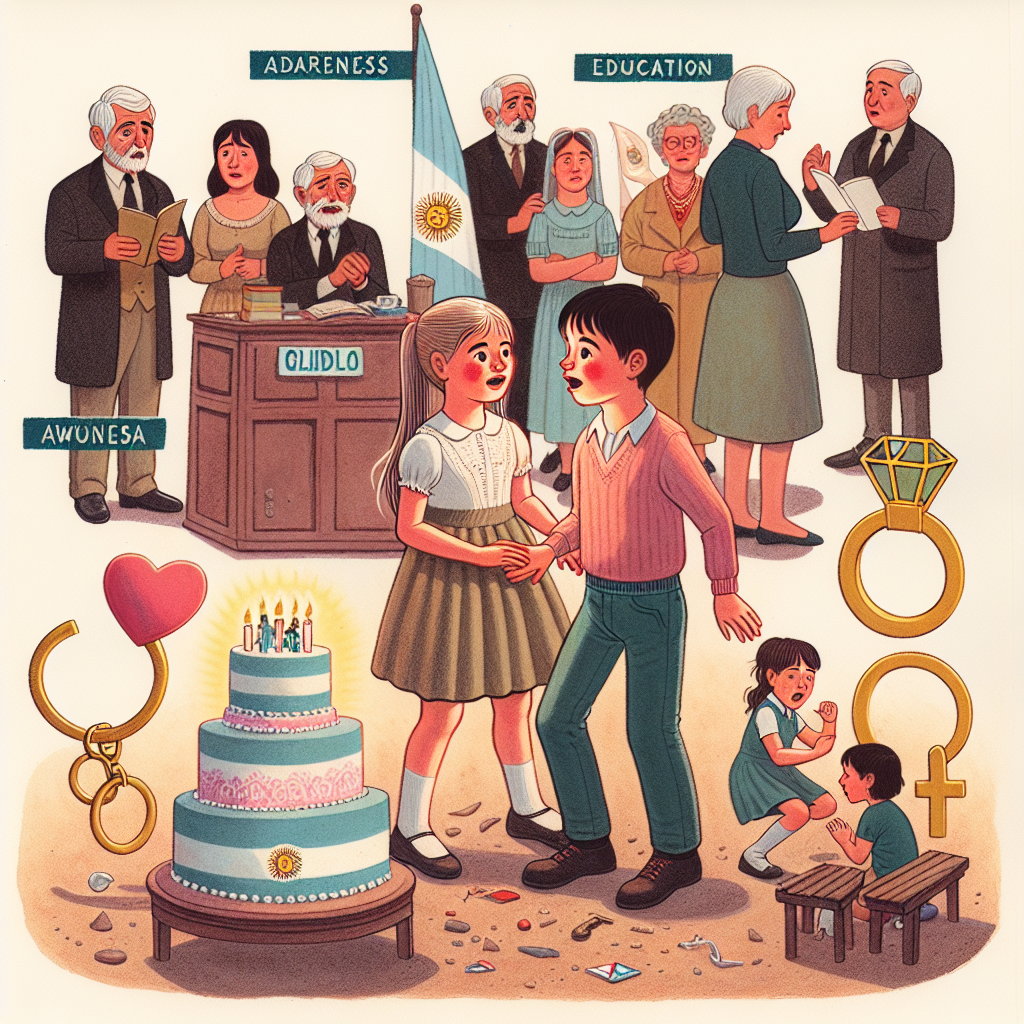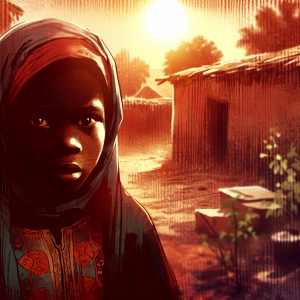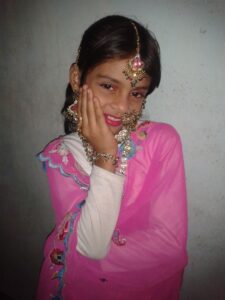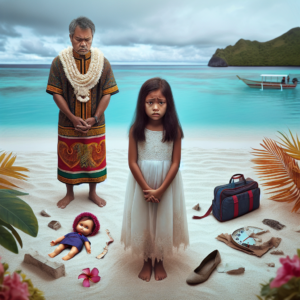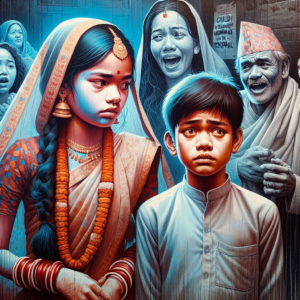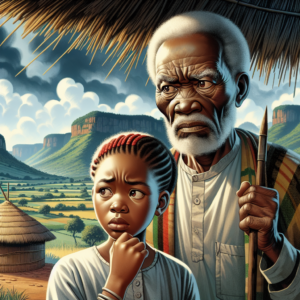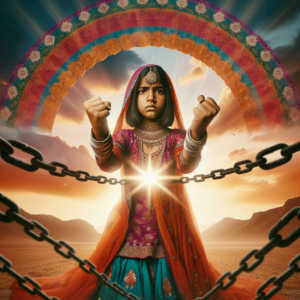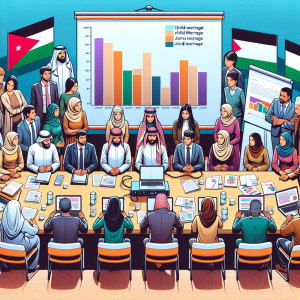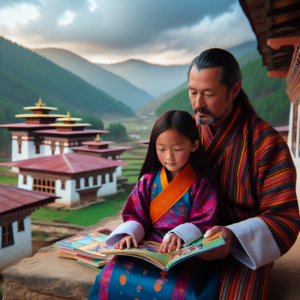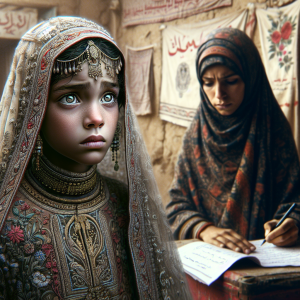#ChildMarriage #EndChildMarriage
Confronting Child Marriage in Argentina
Argentina, a nation known for its dynamic culture, fervent soccer fandom, and storied past, faces a critical challenge that lurks beneath its lively facade: the issue of child marriage. This deeply entrenched practice not only robs children, particularly girls, of their youth but also hampers their access to education, health services, and the freedom to shape their own futures. This article explores the ongoing struggle to eradicate child marriage in Argentina, shedding light on the initiatives underway and the hurdles to overcome.
Deciphering Child Marriage
Child marriage, defined as any formal marriage or informal union before reaching 18 years of age, is a pervasive problem affecting millions globally. Despite Argentina’s legal marriage age being 18, cultural traditions and legal exceptions continue to sustain this detrimental custom.
Statistics and Consequences
While specific figures on child marriage in Argentina are scarce, it is more commonly encountered in rural and indigenous areas. The repercussions of child marriage are profound, disrupting a child’s life in every conceivable way. It often results in early pregnancy, posing severe health risks to both mother and infant, and interrupts education, further entrenching cycles of poverty.
Challenging Child Marriage: Actions and Obstacles
The battle against child marriage in Argentina is a collaborative endeavor involving government entities, NGOs, and community influencers, focusing on both prevention and support for those already impacted.
Legislation and Policy
Argentina has progressed in fortifying its legal framework to safeguard children from early marriage, setting the minimum legal marriage age at 18. Nonetheless, exceptions exist that permit minors to marry with judicial approval, a loophole that advocates are striving to eliminate. The country has also implemented strategies like the National Plan for the Prevention of Unintended Adolescent Pregnancy and the National Action Plan against Violence towards Women to mitigate child marriage drivers.
Educational and Empowerment Initiatives
Leveraging education as a tool against child marriage has shown promise. Educational programs that keep girls in school and inform them of their rights are pivotal. Such efforts not only equip girls with the knowledge and skills for a brighter future but also increase awareness about the detrimental effects of child marriage.
Engaging Communities
Addressing deep-seated cultural norms and practices poses a significant challenge. The fight against child marriage in Argentina also entails engaging community leaders and parents in discussions, educating them on the advantages of postponing marriage for their children. This grassroots strategy is vital for lasting change.
Advocates’ Voices: Pushing for Change
Global writers and human rights defenders have joined the cause against child marriage, offering inspiration and emphasizing the critical nature of safeguarding children’s rights.
-
"The greatest cruelty is our casual blindness to the despair of others." – Unknown. This statement underscores the necessity of recognizing and addressing the pain child marriage causes.
-
"Freedom cannot be achieved unless the women have been emancipated from all forms of oppression." – Nelson Mandela. The fight against child marriage is intrinsically a battle for the freedom and empowerment of girls and women.
- "I raise up my voice—not so I can shout, but so that those without a voice can be heard." – Malala Yousafzai. Advocates aim to amplify the voices of those affected, advocating for their rights and dignity.
Obstacles and Future Directions
The path to eradicating child marriage in Argentina is fraught with challenges. Poverty, inadequate education, and entrenched cultural norms continue to propel the practice. The COVID-19 pandemic has intensified many underlying issues, with economic strains and school closures putting additional girls at risk.
Enhancing Laws and Policies
A critical step forward is the removal of legal exceptions that facilitate child marriage. It is imperative to strengthen laws and policies to unambiguously protect children.
Promoting Societal Shifts
Legal reforms must go hand in hand with efforts to alter societal attitudes and norms around child marriage. This requires ongoing education and community involvement to transform perceptions and values.
Aiding Survivors
It’s equally important to support individuals already affected by child marriage, providing them with access to education, healthcare, and economic opportunities to envisage a new future.
Conclusion
The endeavor to abolish child marriage in Argentina exemplifies the resilience and dedication of many striving to safeguard children’s rights. While obstacles persist, the achievements thus far offer hope for a future where children can enjoy their youth unencumbered by early marriage.
In contemplating this vital cause, let’s recall the words of human rights activist Nada Al-Ahdal: “Protecting human rights is not an option, but a responsibility of us all” @nadalahdal. The struggle against child marriage extends beyond those directly affected; it is a clarion call to all who value justice, equality, and the intrinsic worth of every individual.
The quest to end child marriage in Argentina and globally continues, demanding our collective commitment for the welfare of future generations. By uniting in this cause, we can dismantle the shackles of child marriage and unlock the immense potential of countless children.
#NadaFoundation
#ChildMarriage
#Nada_Foundation
#NadaAlahdal
#Breaking #Chains #Fight #Child #Marriage #Argentina
breaking-the-chains-the-fight-against-child-marriage-in-argentina



